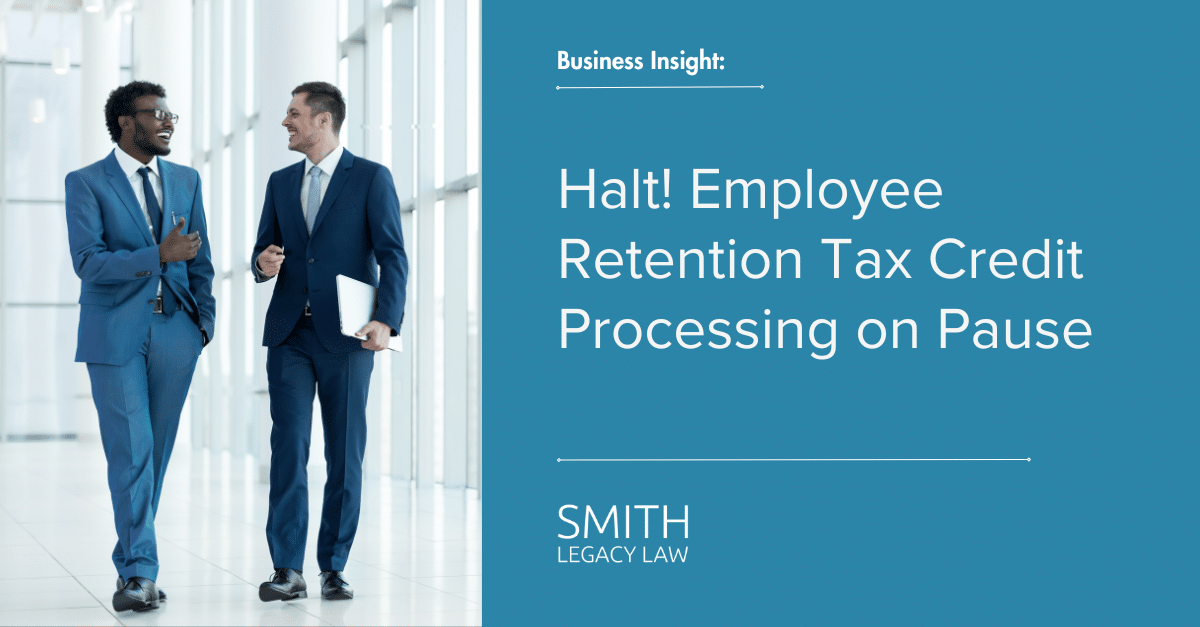The Employee Retention Tax Credit (ERTC) was established as part of the 2020 Coronavirus Aid, Relief and Economic Security (CARES) Act to help businesses that retained employees during the pandemic. While many businesses have taken advantage of the ERTC program and received the credit, others are still waiting because of continuing delays. Recently, the IRS halted the processing of claims. If you have already submitted a claim or plan to, here’s what you need to know.
Employee Retention Tax Credit
The ERTC was designed to provide aid to businesses that were forced to fully or partially close as a result of government restrictions, or experienced a substantial decline in gross receipts during the applicable time periods, but continued to pay employees. It provides a fully refundable tax credit for employers against certain employment taxes. The credit is equal to 50% of the qualified wages that eligible employers pay their employees.
Eligibility rules vary depending on the size of the business, whether operations were fully or partially suspended, and whether there was a significant decline in gross receipts. To qualify, employers must submit an application to the IRS demonstrating their eligibility for the credit.
IRS Processing of ERTC Claims
On September 14, 2023, the IRS announced an immediate moratorium on processing any new ERTC claims, which will remain in effect at least until December 31, 2023, though perhaps much longer. This halt was based on IRS concerns about significant fraud and abuse of the ERTC. The IRS identified “red flags” indicating growing instances of fraudulent activity by applicants, including false information and exaggerated claims regarding the impact the pandemic had on business operations.
Importantly, claims that were filed before the pause are still being reviewed by the IRS. However, the anticipated timeline for response is now 180 days.
New applications are still being accepted by the IRS, but they are being held as a result of the moratorium. Such claims will not be processed until the IRS resumes processing them in 2024. At that time, they will be reviewed in the order in which they were received by the IRS.
Steps
If you have already submitted a claim, stay informed about any updates issued by the IRS regarding applications.
Before submitting a new claim, you should review your application carefully. Follow the guidelines, gather and provide all supporting documentation (payroll records, financial statements, etc.), and double-check that your claim is accurate and truthful. Also, consider consulting an experienced professional for assistance.
Our attorneys and network of advisors can determine whether you qualify for tax benefits, such as the ERTC or other options that can help your business be more successful.
